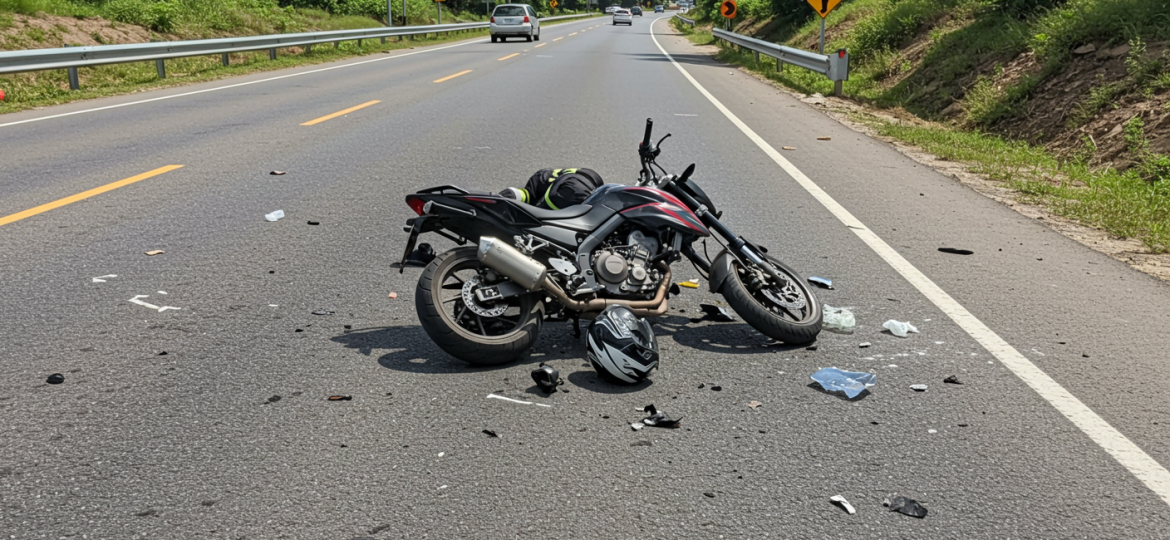Ohio Motorcycle Helmet Laws: What Riders Need to Know
If you’re a motorcycle rider in Ohio, it’s crucial to understand helmet laws and how they affect your rights after an accident. As experienced motorcycle accident attorneys, we frequently handle cases involving both helmeted and non-helmeted riders. Here’s what you need to know about Ohio motorcycle helmet laws and whether they can impact your personal injury case.
Ohio’s Current Helmet Laws
In Ohio, motorcycle helmets are not required for most adult riders. However, there are important exceptions to Ohio motorcycle helmet law:
- Riders under 18 years old must wear a helmet
- Riders with a novice license or temporary permit must wear a helmet
- Passengers under 18 must wear a helmet
How Does Not Wearing a Helmet Affect Your Accident Claim?
A common concern among riders is whether not wearing a helmet will prevent them from seeking compensation after an Ohio motorcycle accident. Here’s the crucial point: if you weren’t legally required to wear a helmet, not wearing one typically won’t affect your right to compensation.
As David Chester explains, “The other side will argue comparative negligence, but we argue it’s not required by law, so it doesn’t usually play a big role.” This is because you can’t be considered negligent unless you have a legal duty to do something. Without a law requiring adult riders to wear helmets, there’s no duty to wear one.
Real Case Examples
Our experience with motorcycle accidents in Ohio has shown that helmet usage rarely impacts case outcomes when the rider wasn’t legally required to wear one.
In fact, in recent wrongful death cases involving riders without helmets, insurance companies typically don’t even raise the helmet issue during settlement discussions. This is because the focus remains on liability and damages rather than optional safety equipment. When policy limits are reached, cases often settle regardless of helmet use, since there’s no legal basis to reduce compensation for not wearing something that wasn’t required by law.
This is different from other types of safety equipment requirements. For example, if you’re not wearing a seatbelt in a car accident, insurance companies often argue comparative fault because it’s legally required. As David Chester explains, “You can’t be negligent unless you had a duty to do something. You have a duty to wear a seatbelt, but no duty to wear a helmet unless you’re under 18.”
Motorcycle accidents often result in severe injuries, regardless of helmet use. In these cases, the focus typically shifts to:
- Securing adequate compensation for catastrophic injuries
- Managing extensive medical bills
- Dealing with insurance coverage limits
- Negotiating with health insurance providers, Medicare, or Medicaid
Long-Term Financial Implications
In cases involving serious head injuries, the financial implications can be significant. Medical costs may exceed available insurance coverage, and riders might need long-term care. Our firm works to:
- Maximize available insurance coverage
- Negotiate with healthcare providers
- Reduce repayment obligations to health insurers
- Protect clients’ future medical care needs
The Importance of Legal Representation
When dealing with motorcycle accident cases, having experienced legal representation is crucial. These cases often require expert testimony, substantial upfront costs, and complex negotiations with multiple insurance providers. It’s also crucial to fully understand your current and future medical needs to properly determine the motorcycle accident compensation in Ohio you can receive.
Seek Help After Your Ohio Motorcycle Accident
Don’t settle for less when your future is at stake. If you’ve been involved in an Ohio motorcycle accident and need legal representation, contact Chester Law Group for a free consultation at (800) 218-4243 or reach us online. With our proven track record of handling catastrophic injury cases, we have the resources to invest in top experts, the experience to reduce your medical bills, and the dedication to fight for every dollar you deserve, even in the most complex cases.





